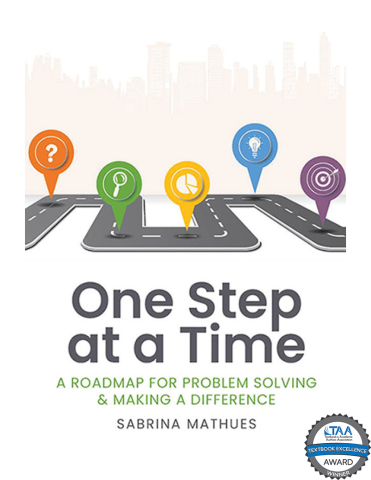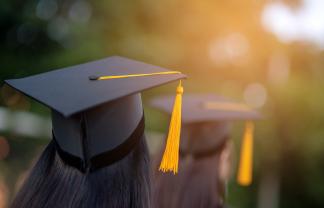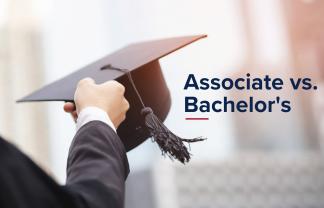Questions? Request Information
A Versatile Degree for Versatile Careers
If you are seeking a degree that will provide a broad understanding of the world, the Bachelor of Arts in Liberal Arts program from the University of Arizona Global Campus (UAGC) may be your answer. The diversity of courses in the BA in Liberal Arts will enable you to examine major national and global issues, especially those issues related to cultures and diversity, to prepare you for lifelong learning and social, cultural, and technological change.
The online liberal arts degree program is designed for students who seek career opportunities in many fields, providing you with a broad-based educational experience and skills for an array of career fields.
Upon completion of your online liberal arts degree, you will be able to:
- Examine how works from different humanistic disciplines express the human condition from antiquity through the present
- Interpret works from multiple disciplines within their historical, cultural, and socio-political contexts using interdisciplinary modes of analysis
- Evaluate the values, ideologies, and movements that influence interactions among peoples, groups, or nations in different historical contexts
- Assess modern social and global challenges, including the significance of gender, socio-economic class, race and ethnicity, religion, and environment in creating social change and developing human inquiry
- Design projects that align advanced competencies in humanistic inquiry to individualized goals that serve diverse audiences
UAGC Award-Winning Curriculum
Military Students $250.00/credit
Undergraduate Courses $460.00/credit
Technology Fee** $115.00/course
Books and Other Class Materials** $125.00/average per course
Graduation Fee $150.00
Total Program Cost See UAGC Catalog¹
¹Keep in mind that this figure doesn’t factor in any potential discounts, partner benefits, or impact of accepted transfer credits, if eligible.
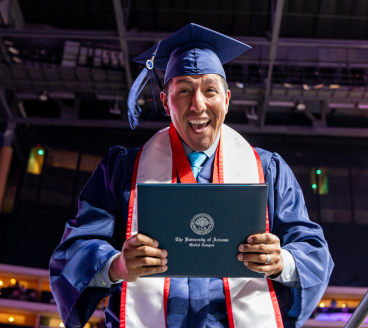
UAGC offers enrolled students access to ScholarshipUniverse, a platform that tailors external scholarship opportunities to your unique situation, making it easier to find and apply for scholarships.
UAGC is proud to provide reduced tuition rates for our academic and corporate partners, helping community college transfer students and corporate employees earn their degrees at a lower cost.

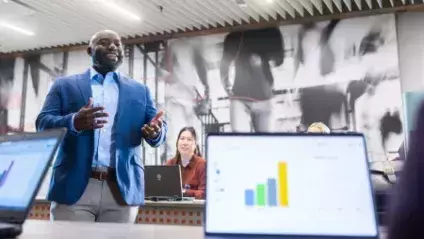
Online Liberal Arts Degree Curriculum Overview
In your liberal arts courses, you will examine major national and global issues, especially those issues related to culture and diversity, as well as literary theory, the environment and human spirit, research methods for the humanities, and relevant topics such as women, culture, and society.
To earn your Bachelor of Arts in Liberal Arts at the University of Arizona Global Campus, you must complete 120 credits. You will need to complete 30 upper-division credits, of which 18 credits must be from the major program. A total of 30 credits must be completed at the University of Arizona Global Campus to meet the residency requirement. You may be able to transfer approved credits from community colleges, other previous college coursework, or other life experiences such as military service or job training toward your degree.
*In this program, 6 credits from the major may also satisfy General Education requirements.
This program is not designed to meet the state educational requirements for a specific professional license or certification in any state. Students seeking licensure or certification in a particular profession shall carefully research the requirements prior to enrollment and regularly review the requirements as they are subject to change. Requirements vary by state. The University of Arizona Global Campus does not guarantee that any professional organization will accept a graduate’s application to sit for any exam for the purpose of professional certification. Further, a criminal record may prevent an applicant from obtaining licensure, certification, or employment in their field of study.
Certain degree programs may not be available in all states.
The Online Teaching Support Certification recognizes programs that require all online faculty to undergo training in best practices for online course delivery, provide faculty with ongoing pedagogical support, encourage faculty professional development to increase their knowledge and skill in online teaching, emphasize instructor availability and feedback to learners, and collect and use feedback from learners to improve online teaching. Learn More

The Online Learner Support Certification recognizes programs that provide all the critical student and academic services needed for learner success and use learner feedback to continuously improve those services.
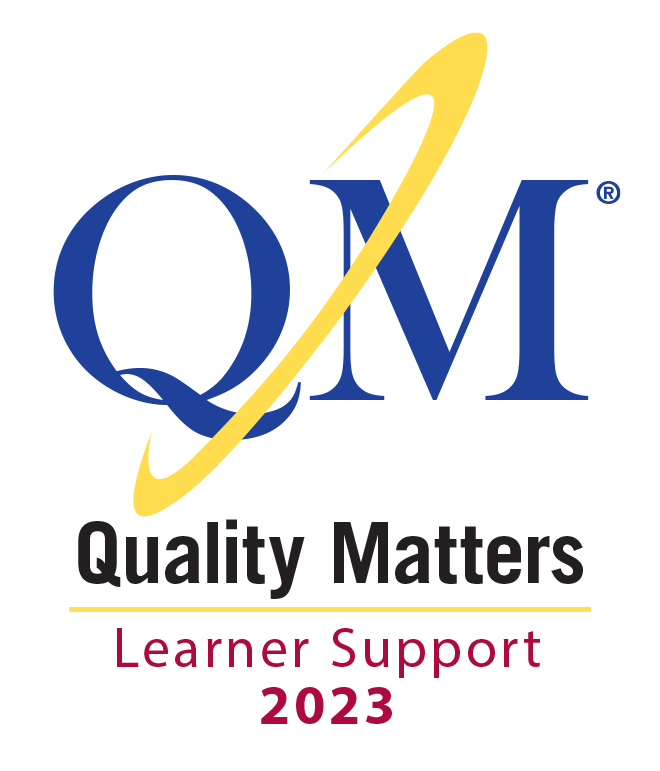
What Can I Do with a Degree in Liberal Arts?
With a versatile BA in Liberal Arts, you could pursue a career in a variety of occupations, including:
- Writer and Author
- News Analyst
- Reporter and Journalist
- Editor
- Recreation Worker
- Public Relations Specialist
- Manager
A report by the World Economic Forum predicts that the average American adult will need to prepare for multiple career changes during their working lives due to the rapid advancement of technology. Liberal arts programs prepare graduates for a wide variety of jobs in business, communications, the arts, education, health care, and legal professions, and in social and public service occupations.
Gain insights into the business information systems job market by reviewing the Bureau of Labor Statistics market outlook report.
I loved the interaction and learning environment that facilitated growth and understanding for my professional self.
BA in Liberal Arts FAQs
-
The UAGC Bachelor of Arts in Liberal Arts provides a broad-based education encompassing global and national issues related to culture and diversity, literary theory, the environment and human spirit, research methods for the humanities, and relevant topics such as women, culture, and society. It emphasizes critical thinking, communication skills, and intellectual exploration across diverse subjects.
-
A liberal arts degree develops transferable skills like critical thinking, problem-solving, and communication, which are valuable skills in the job market. Its worth depends on your individual career goals and how well those skills are articulated to potential employers.
-
While it may not lead to a specific job title directly, a liberal arts education prepares you for a wide range of careers by fostering adaptability and lifelong learning. At UAGC, you’ll learn a broad base of knowledge and skills that apply to multiple fields.
See What Else UAGC Has to Offer
Questions? Request More Information
To access this rate using the Liberty Grant, only eligible undergraduate active duty service members, members of the National Guard, Reservists, spouses of active duty, members of the National Guard and Reservists, Department of Defense employees using Tuition Assistance (TA), and civilian employees of the United States Coast Guard (only if utilizing Military Tuition Assistance) will qualify.
**
The Technology Fee covers access to University systems such as the online classroom, the Student Portal, and other academic resources. The Technology Fee and the Course Digital Materials (CDM) Fee are fully refundable if a student does not attend beyond Day 3 of a course (Week 3 if covered under the University of Arizona Global Campus Promise Refund Schedule). After this time, the fee becomes non-refundable. Students are charged the Technology Fee for repeated coursework. Students are not charged the CDM fee for repeated coursework if previously charged.
†
The transferability of credits is subject to the University of Arizona Global Campus transfer credit policies and requires the submission of official transcripts. The official transcripts will be evaluated by the Registrar’s Office to determine the credits that will officially apply toward a UAGC degree program. Credits must be earned at the same degree level in order to be applied. Additional restrictions may apply. See the UAGC Academic Catalog for full undergraduate and graduate transfer policies.


